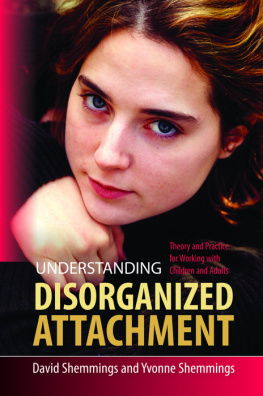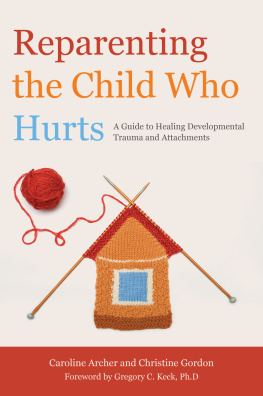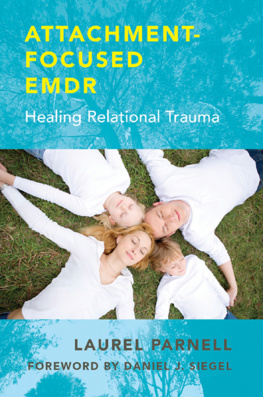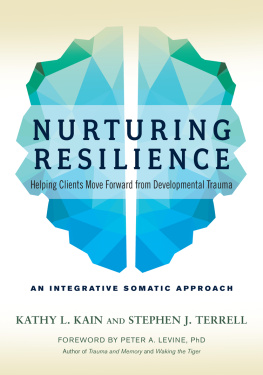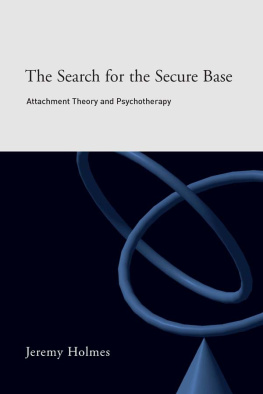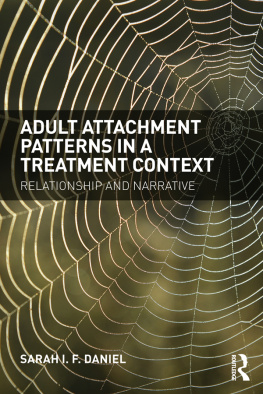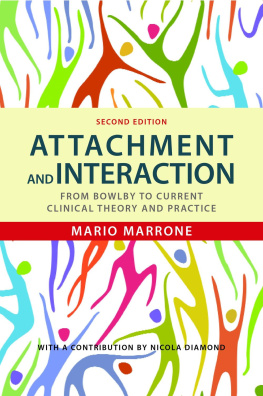HEALING THE HIDDEN HURTS
by the same author
First Steps in Parenting the Child who Hurts
Tiddlers and Toddlers
2nd edition
Caroline Archer
Foreword by Vera I. Fahlberg, MD
ISBN 978 1 85302 801 4
eISBN 978 1 84642 184 6
Next Steps in Parenting the Child Who Hurts
Tykes and Teens
Caroline Archer
ISBN 978 1 85302 802 1
eISBN 978 1 84642 204 1
Reparenting the Child Who Hurts
A Guide to Healing Developmental Trauma and Attachments
Caroline Archer and Christine Gordon
Foreword by Gregory C. Keck, PhD
ISBN 978 1 84905 263 4
eISBN 978 0 85700 568 7
New Families, Old Scripts
A Guide to the Language of Trauma and Attachment in Adoptive Families
Caroline Archer and Christine Gordon
ISBN 978 1 84310 258 8
eISBN 978 1 84642 482 3
Trauma, Attachment and Family Permanence
Fear Can Stop You Loving
Edited by Caroline Archer and Alan Burnell
Foreword by Daniel A. Hughes
ISBN 978 1 84310 021 8
eISBN 978 1 84985 588 4
of related interest
Attachment, Trauma, and Healing
Understanding and Treating Attachment Disorder in Children, Families and Adults
2nd edition
Terry M. Levy and Michael Orlans
ISBN 978 1 84905 888 9
eISBN 978 0 85700 597 7
Understanding Attachment and Attachment Disorders
Theory, Evidence and Practice
Vivien Prior and Danya Glaser
ISBN 978 1 84310 245 8
eISBN 978 1 84642 546 2
Observing Children with Attachment Difficulties in School
A Tool for Identifying and Supporting Emotional and Social Difficulties in Children Aged 511
Kim S. Golding, Jane Fain, Ann Frost, Cathy Mills, Helen Worrall, Netty Roberts, Eleanor Durrant and Sian Templeton
ISBN 978 1 84905 336 5
eISBN 978 0 85700 675 2
Observing Children with Attachment Difficulties in Preschool Settings
A Tool for Identifying and Supporting Emotional and Social Difficulties
Kim S. Golding, Jane Fain, Ann Frost, Sian Templeton and Eleanor Durrant
Foreword by Louise Bombr
ISBN 978 1 84905 337 2
eISBN 978 0 85700 676 9
Nurturing Attachments
Supporting Children who are Fostered or Adopted
Kim S. Golding
ISBN 978 1 84310 614 2
eISBN 978 1 84642 750 3
The Teachers Introduction to Attachment
Practical Essentials for Teachers, Carers and School Support Staff
Nicola Marshall
ISBN 978 1 84905 550 5
eISBN 978 0 85700 973 9
HEALING THE
HIDDEN HURTS
Transforming Attachment and Trauma Theory into
Effective Practice with Families, Children and Adults
EDITED BY CAROLINE ARCHER,
CHARLOTTE DRURY AND JUDE HILLS
FOREWORD BY DAVID HOWE
Jessica Kingsley Publishers
London and Philadelphia
Illustrations at the beginning of chapters are kindly provided by Jude Hills.
Figures 9.1 and 9.2 reproduced with kind permission from Jonny Matthew.
First published in 2015
by Jessica Kingsley Publishers
73 Collier Street
London N1 9BE, UK
and
400 Market Street, Suite 400
Philadelphia, PA 19106, USA
www.jkp.com
Copyright Jessica Kingsley Publishers 2015
Foreword copyright David Howe 2015
All rights reserved. No part of this publication may be reproduced in any material form (including photocopying or storing it in any medium by electronic means and whether or not transiently or incidentally to some other use of this publication) without the written permission of the copyright owner except in accordance with the provisions of the Copyright, Designs and Patents Act 1988 or under the terms of a licence issued by the Copyright Licensing Agency Ltd, Saffron House, 610 Kirby Street, London EC1N 8TS. Applications for the copyright owners written permission to reproduce any part of this publication should be addressed to the publisher.
Warning: The doing of an unauthorised act in relation to a copyright work may result in both a civil claim for damages and criminal prosecution.
Library of Congress Cataloging in Publication Data
Healing the hidden hurts : transforming attachment and trauma theory into effective practice with
families, children and adults / eited by Caroline Archer, Charlotte Drury and Jude Hills.
pages cm
Includes bibliographical references and index.
ISBN 978-1-84905-548-2 (alk. paper)
1. Attachment disorder in children--Treatment. 2. Attachment disorder--Treatment. 3. Attachment
behavior in children. 4. Attachment behavior. I. Archer, Caroline, 1948- editor.
RJ507.A77.H43 2015
618.928588--dc23
2014044140
British Library Cataloguing in Publication Data
A CIP catalogue record for this book is available from the British Library
ISBN 978 1 84905 548 2
eISBN 978 0 85700 972 2
CONTENTS
FOREWORD
Since its earliest days, attachment theory has had an influence on child and family welfare practice. Admittedly, back in the 1960s and 1970s much of this influence was limited to young childrens experience of loss as they moved from birth family to foster care, or between one foster home and another. Nevertheless it hinted at the growing interest being taken in young childrens psychosocial and emotional development and the critical part that early care may play in that development. As the research progressed and the theory became more refined, our understanding of the critical importance of childrens caregiving, careseeking and attachment experiences deepened. A key finding was the part that parents and carers played in helping children regulate their emotions, particularly at times of stress. Parenting that was sensitive and attuned, mind-minded and responsive helped children to make sense of themselves and other people as complex emotional and psychological beings. In turn, children who felt psychologically understood became good at psychological understanding. Children who had enjoyed being on the receiving end of empathic care learned to be empathic. Thus it became apparent that securely attached children who enjoyed these reciprocal relationship experiences would, in all likelihood, go on to enjoy good mental health and a decent social life.
The importance of early life relationship experiences also began to interest other scientists as well as developmental psychologists. The neuroscientists realised that the brains ability to process stress and complex emotions depended on how well young children had been helped to recognise, understand and manage their own and other peoples feelings and arousal. Similarly the concept of stress and its regulation, both physically and psychologically, began to be studied in the context of parentchild relationships.
Today we have a vast literature on childrens emotional and social, psychological and neurological development. We recognise the importance of a babys antenatal experiences. We understand why relationships have such a profound impact on development throughout childhood, from infancy to adolescence. Although this literature is possessed of wonderful subtlety and refinement, nevertheless we can tease out some basic messages. For example, children who have enjoyed good quality, emotionally attuned, psychologically collaborative care generally grow up to be socially competent, emotionally intelligent people. In contrast, children who have suffered abuse and neglect, trauma and loss find managing their own and other peoples feelings and behaviour much more difficult, much more puzzling. When you are very small, vulnerable and not yet able to protect yourself, you need your caregivers to protect you, care for you and help you make sense of things, including your own self. But if the grown-ups are dangerous, scary, absent or unpredictable, then you are on your own. Feeling safe, learning to understand emotions and managing your own and other peoples behaviour are very difficult if you are left to fend for yourself in an uncertain, frightening world. So you have to defend yourself psychologically against the fears of being hurt, alone, frightened and confused. Adults, especially carers, cant be trusted. Better to be in control rather than be controlled. Switch off if it all gets too much. Be wary, be vigilant. But even though youve had to find ways to try to survive, it is all very difficult, frightening and stressful. Little wonder then that being cared for by a family, taught in a classroom, taken to a nursery, sat down in therapy or driven to see your birth mother for contact are so hard.


